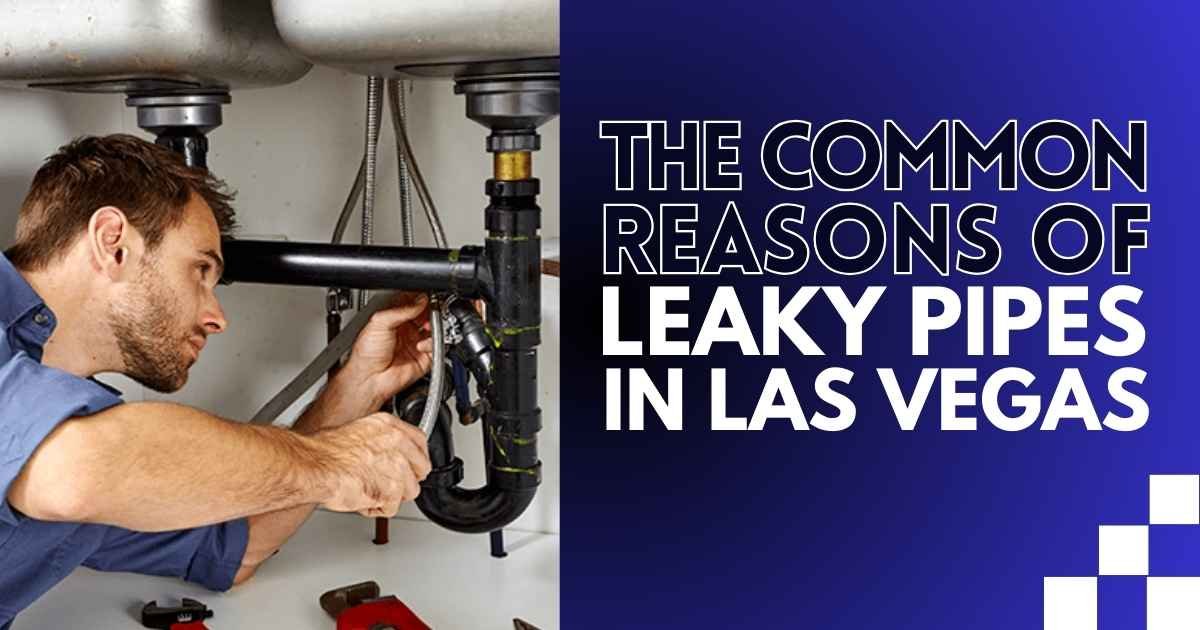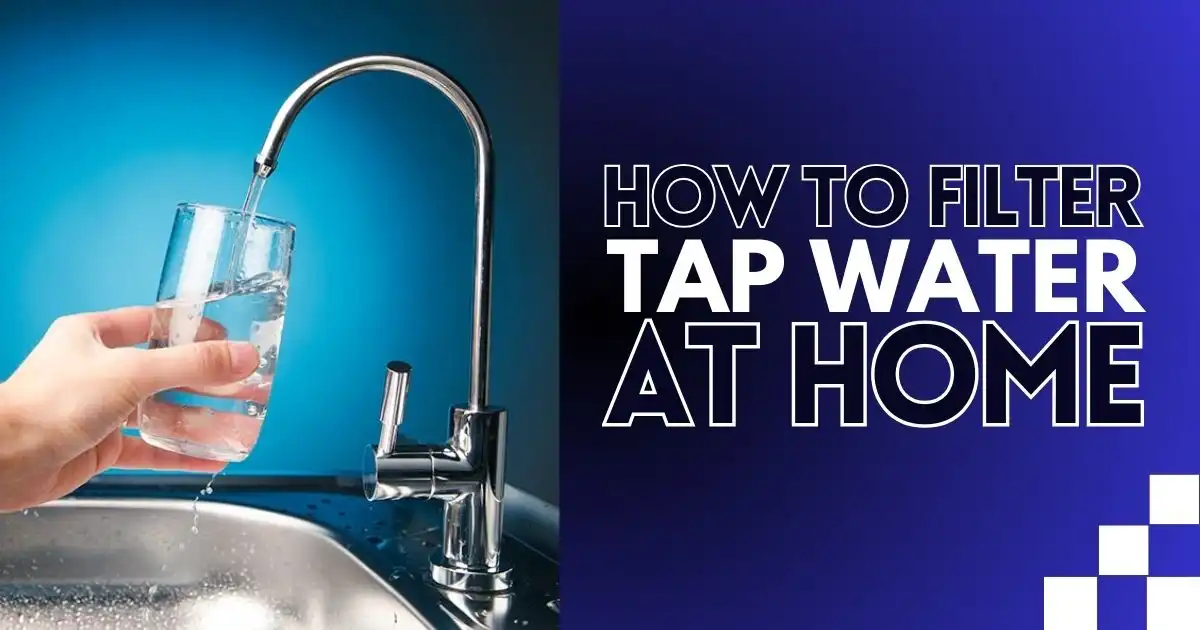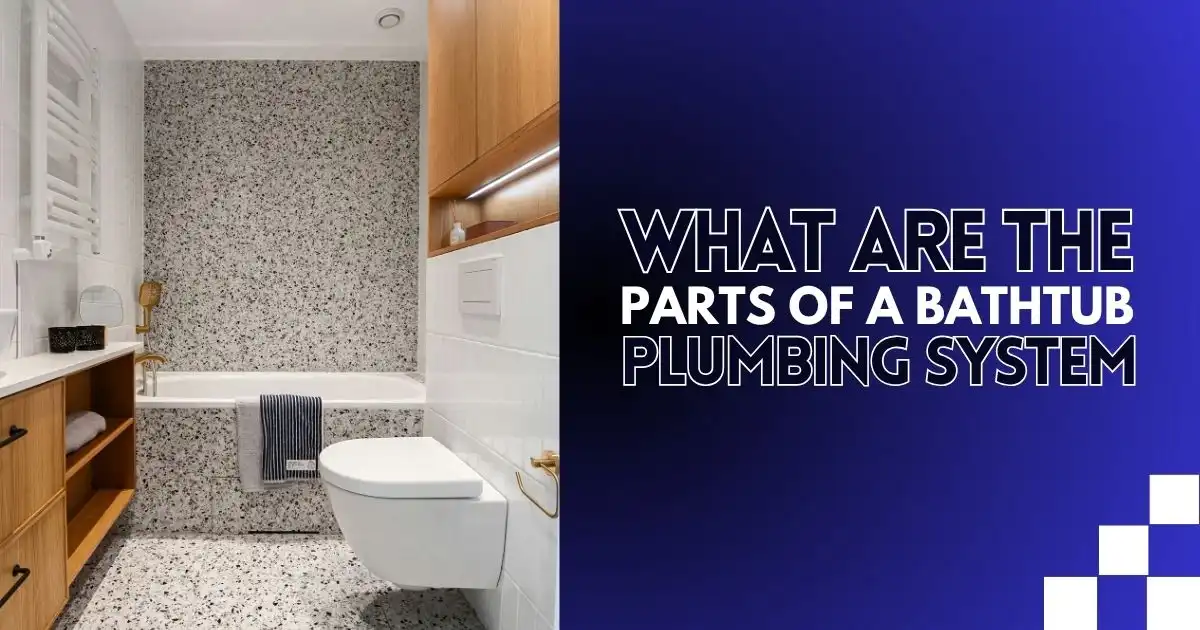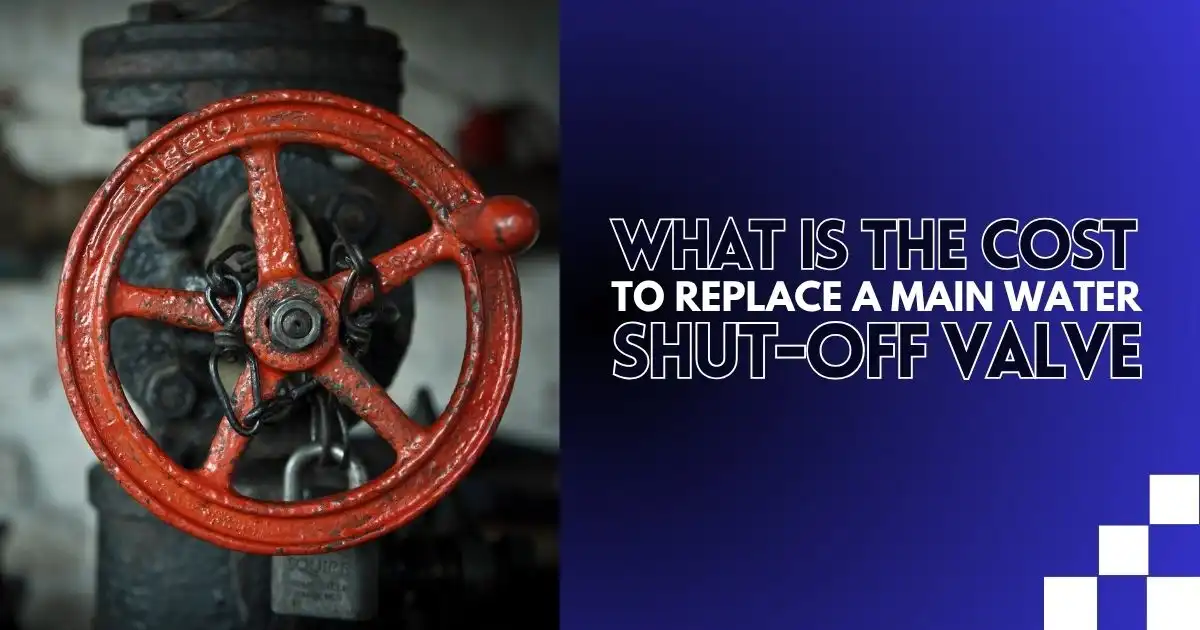You wake up ready to start your day, but as you walk into the kitchen, you step into a puddle of water spreading across the floor. The unexpected sight turns your morning from calm to chaotic as you realize a pipe has been leaking all night. Instead of getting ready for work, you’re now mopping up water and worrying about the damage.
The stress builds as you think about what could have been ruined—the cabinets, the flooring, even your appliances. Isn’t it better to catch these issues early and keep your home safe, instead of dealing with the chaos later?
7 Reasons of Leaky Pipes in Las Vegas
Leaky pipes are a common issue for many homeowners in Las Vegas, often leading to unexpected messes and costly repairs. Knowing what causes these leaks can help you prevent them and keep your home safe. Let’s look at the main reasons pipes leak and how to avoid these unwanted surprises.
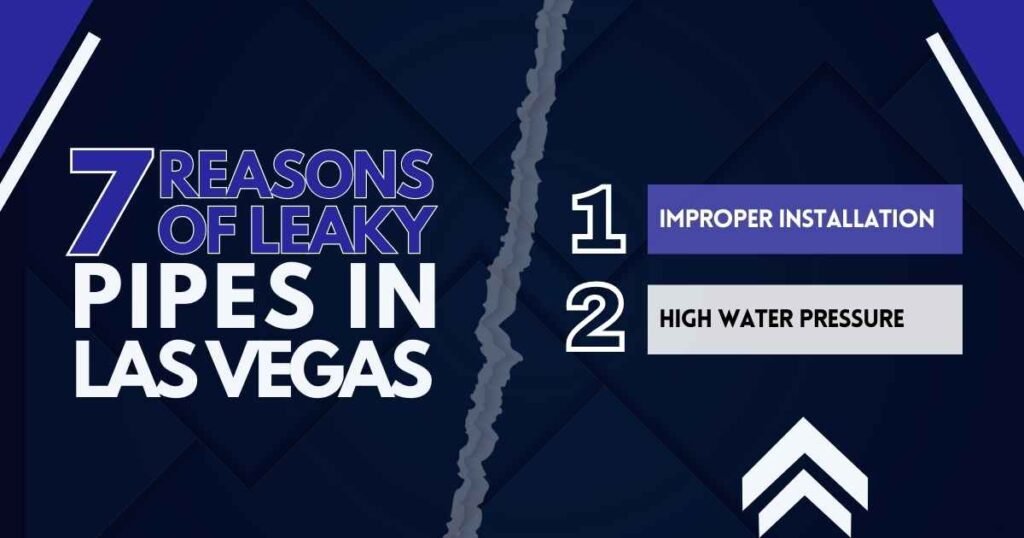
1. Improper Installation
If pipes aren’t installed properly, they are much more likely to leak. Even a small mistake can cause big issues later on, like loose connections that lead to water damage. To avoid this, always contact a professional plumber for any repairs or installations. If you suspect something isn’t right, have an expert check your plumbing to catch problems early.
To prevent improper installation, hire a licensed plumber with good reviews and recommendations. Avoid DIY unless experienced, as mistakes can be costly. If something seems wrong, get an expert to inspect it early to avoid bigger repairs.
2. High Water Pressure
High water pressure is a common reason for pipe leaks. When the pressure is too high, it puts extra strain on your pipes, causing them to crack or even burst. This pressure can also damage the seals at pipe joints, leading to pipe leaks that might go unnoticed until they cause serious damage.
- Use a Pressure Gauge: Regularly check your water pressure using a pressure gauge, which you can attach to a faucet or hose bib. If the reading is above 60 psi, you may have a problem.
- Install a Pressure Regulator: If your water pressure is too high, consider installing a pressure regulator to maintain a safe level and protect your pipes.
- Look for Warning Signs: Be on the lookout for banging noises in the pipes (water hammer) or sudden spikes in your water bill—these can be signs of high water pressure. Addressing these issues early can help prevent leaks.

3. Clogged Water Lines
Clogs can come from mineral buildup, tree roots, or even debris that gets stuck in the pipes. When a water line is clogged, it restricts the flow of water, creating extra pressure that can weaken or crack the pipe.
To prevent clogs, flush your water lines regularly and avoid putting grease, coffee grounds, or food scraps down the drain. Use drain strainers to catch debris. Plant trees away from pipes or use root barriers to stop root growth. Regular maintenance helps keep your plumbing in good shape.
4. Fixture Cracks
Over time, pipes and fixtures can crack from regular wear and tear. High water temperatures and poor-quality materials make cracking more likely, especially as pipes age. If you spot a leak, check the pipes for cracks, and make sure all connections are secure. Replacing old or cracked fixtures promptly can prevent bigger leaks later.
To prevent fixture cracks, use high-quality materials and insulate pipes against temperature changes. Avoid extremely hot water, which weakens pipes. Regularly inspect pipes to catch small cracks early. If you notice discolored water or low pressure, act quickly to fix it.

5. Tree Roots
Tree roots are powerful and can break into underground water lines in search of water. If you see unexplained wet spots or sinkholes in your yard, it could mean roots have damaged your pipes.
To avoid root damage, take action early. Plant trees away from water lines and use root barriers to keep roots away from pipes. Have a plumber inspect your pipes yearly to catch problems early. A little effort now can save you from expensive repairs later. Don’t let tree roots become a costly plumbing problem—protect your pipes before it’s too late.
6. Broken Pipe Joints
Pipe joints are used to connect straight pipes and change direction in your plumbing. These joints can wear down over time, especially in areas with fluctuating temperatures or high water pressure. Broken pipe joints often lead to hidden leaks that can damage your home’s structure.
Fixing a leaking joint quickly not only prevents expensive damage but also helps maintain the health and safety of your home. Don’t wait until it’s too late—if you suspect a broken pipe joint, call a professional plumber. Addressing the issue early can save you from a lot of stress, money, and potential health problems down the line.
7. Frozen Pipes
Although frozen pipes are rare in Las Vegas, they can still happen during unusually cold weather. When water inside a pipe freezes, it expands, and if it expands too much, it can lead to a burst pipe, causing severe water damage to your home.
To avoid frozen pipes, take simple steps: let faucets drip during cold nights, open cabinet doors to let warm air reach pipes, and disconnect outdoor hoses. Keep your home warm, especially in colder areas like the basement. If pipes freeze, thaw them quickly using a hair dryer or warm towels before they burst.
When Should You Replace Your Pipes?
How old are your home’s pipes? Aging pipes can lead to costly problems like leaks, flooding, or mold. Replacing them on time can save you from expensive repairs and headaches. Most pipes last over 30 years, but it’s important to know their material. If you have lead or polybutylene pipes, replace them immediately to protect your home and health.
Here are some signs it may be time to replace your pipes:
- Low water pressure
- Rusty or discolored water
- Home or pipes are over 30 years old
- Unusual smells
- Frequent leaks
- Pipe discoloration, stains, or flaking (could mean corrosion)
- Brown or yellow water, which can mean decay in your pipes
Call a local plumber to check your pipes every year. It’s best to let a professional decide when a replacement is needed.
Don’t Let Hidden Leaks Catch You Off Guard
Think your plumbing is in perfect shape? Even the most attentive homeowners can overlook hidden leaks that lead to costly damage. Just like successful businesses rely on experts to thrive, your home needs professional care to stay protected. Ignoring a small leak today could mean facing a flooded home tomorrow.
At Vegas Plumbing Pros, our experts are here to spot and solve these problems before they get worse. Don’t wait until it’s too late—reach out now and keep your home safe from unexpected plumbing disasters. Are you ready to take control and protect your home for the long haul?
FAQs
What are the most common causes of leaky pipes?
The most common causes of leaking pipes include high water pressure, improper installation, clogged pipes, cracked fixtures, tree roots, broken pipe joints, and sometimes even frozen pipes during cold weather.
What causes a burst pipe?
A burst pipe can happen because of high water pressure, freezing temperatures, clogs that create too much pressure, or old and weakened pipes. When the pressure inside the pipe becomes too much, it can crack or burst.
How to stop a leaky pipe?
To stop a leaky pipe temporarily, turn off the main water supply first. Then, use a patch, duct tape, or a pipe clamp to seal the leak until a plumber can make a permanent fix.
How to fix a leaking pipe?
To fix a leaking pipe, you may need to replace the damaged section or seal the leak with a pipe repair kit. For a long-lasting solution, it’s best to call a professional plumber to properly repair or replace the damaged area.
